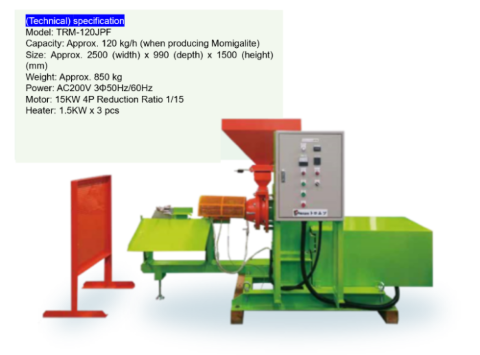- Baseline & Issues
-
Deforestation in Cambodia
Forest area was accounted for 73% of the country land in 1975, but as of 2016 the forest area was 8.74 million hectares, or about 48% of the total country land of 18.16 million hectares.
Firewood/charcoal use and pressure on wood resource use
Dependency on firewood and charcoal is as high as 74.8% (in 2014) (2019-2023 National Strategic Development Plan (NSDP)), with 2.6 million tons of firewood and 3.5 million tons of charcoal consumed annually in Cambodia.
A field survey revealed the reality that firewood is used as an energy source in large quantities in the garment industry and brick manufacturing. In Cambodia, sewing products are the country’s main export industry, but the garment industry uses large amounts of heat (steam) for ironing, washing, etc. More than 500 million bricks are produced for building purposes, but the firing of bricks requires heat of more than 850°C, resulting in considerable energy consumption.
In addition, 60.9% of households in general rely on firewood for cooking, and 78.8% of households in rural areas alone use firewood as their primary cooking fuel. The survey in Kampong Thom Province also confirmed that gas is not widely used and that residents depend on wood and charcoal for cooking.
In addition to deforestation, forest degradation will require residents to travel farther to find firewood for their daily needs. It would require more time to search and possibly purchase firewood and charcoal. Additionally, trees have been illegally felled and stolen within community forests, and countermeasures such as patrols have been implemented, but countermeasures are proving difficult.
Japanese Knowledge Added
- Momigalite – Forming firewood and charcoal from rice husks and unused organic materials

- Applying Japanese Knowledge
-
Introduce Grind Mills to distribute briquettes.
In a project run by local companies and the government, a Grind Mill was used to produce solid fuel (hereinafter referred to as “briquettes”) by mixing 50% sawdust from sawmills and 50% rice husks generated in large quantities at rice mills.
This briquette has the same functionality as firewood, but can be manufactured in a consistent size, making it easier to control the burning time than firewood. It is also safe because it does not emit sparks like firewood. In addition, the heat can be sustained for several hours in a slow fire without dropping all at once as with wood, and the amount of to put in can be easily adjusted. It also eliminates the need to cut down forests for firewood.
The briquettes produced can be used by companies for their own consumption or can be marketed and distributed as value-added products. Furthermore, the organic material obtained by grinding the input biomass before being solidified into briquettes can be sold as litter for livestock. The Grind Mill is not limited to sawdust, but can also use other organic resources to form fuel, so it is possible to develop a business producing briquettes by mixing other unwanted organic resources.
- Benefits to Forest & Community
-
Reduce pressure to use firewood
Users who use firewood in their daily lives can reduce the amount of firewood they need and use by replacing or combining firewood with briquettes. In particular, if businesses that consume large amounts of firewood, such as garment factories and brick factories, shift to using briquettes, the pressure on firewood use will be reduced, contributing to forest conservation.
Improving the Livelihoods of Residents
By switching to briquettes, the general public can reduce the amount of time they spend procuring firewood. Also, if the dependence on firewood decreases, it is expected that illegal logging for firewood collection will decrease, and the burden on patrols will also be reduced. Livelihoods are expected to be improved by using the free time for other livelihood activities.
- Related Links
- Public Seminar Presentation Materials
- Survey / Report
-
- JIFPRO
- TROMSO Co., Ltd.


Your Feedback.